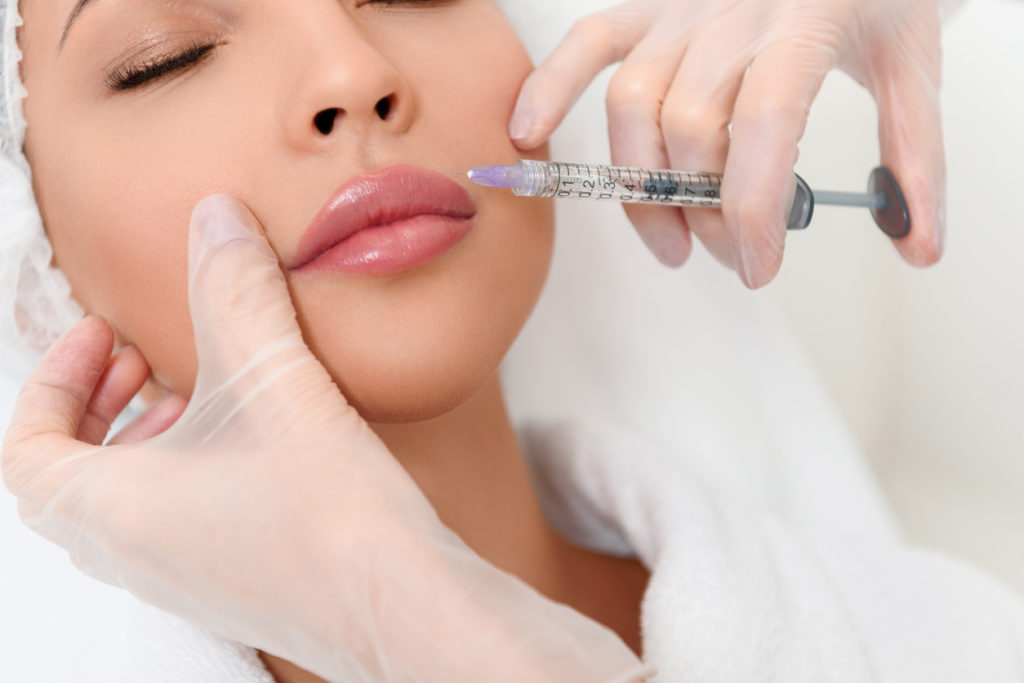In partnership with SA’s top medical aesthetic companies
If you’ve made the decision to try injectables such as botulinum toxin or fillers, or having a thread lift done, don’t go anywhere before considering the following…
- It’s important that you consult an experienced medical professional – an aesthetics doctor, dermatologist or a plastic surgeon – who performs these treatments on a regular basis in his/her own medical practice. Ask friends whose results you like who did their treatment, and check out the practice’s website to see if it feels like a good fit for you.
- Next, make a consultation appointment with your chosen doctor who practices from his/her own rooms so that correct medial requirements such as proper consent forms, patient records and correct medical waste disposal are complied with. Remember, you’re the client, and you’re entitled to ensure you feel comfortable and in safe hands in a safe, medical environment.
- Look for their qualifications and certificates of regular training. Experts practice aesthetics in a safe medical environment and will not only be more up-to-date with the latest trends and techniques, they will also be more skilled at assessing your individual needs and enhancing the natural features of your face without giving you a frozen mask or “trout pout”. Experienced doctors will have an intimate knowledge of the muscular anatomy of the face and how to avoid unwanted consequences.
- Ask the doctor what training they have had and how many of these procedures they do on a monthly basis.
- Ask to see before and after pictures of patients in their clinic.
- The doctor needs to take your full medical history, allergies (e.g. milk protein or egg allergy) and list of medications and nutritional supplements you’re taking to assess if there are any contraindications to the treatment. Full disclosure is very important here.
- Ensure the doctor asks you what your concerns are before they decide on how to proceed. They need to listen to what you believe needs fixing before they give their input. Listen with an open mind to their suggestions (shown by using a hand-held mirror) as their knowledge could mean an even better final result.
- Ensure that proper informed consent has been obtained. This includes possible side-effects and risks which should be clearly explained.
- Discuss your budget limitations. This isn’t the time to be shy. They should take this budget and the maintenance schedule into consideration when choosing the treatment option.
- Be cautious of doctors who promise too much, such as no downtime – as there may be a certain amount of bruising or bleeding.
- Ensure that there are proper medical records kept of your procedure to ensure that the follow up consultation can be tracked.
What’s in store?
Equally important to injection technique is the product itself.
- It must be a legal (registered with the MCC), certified genuine product. Unfortunately, there are counterfeit and illegally imported products available in SA, used by unscrupulous injectors.
- For Botox®, for instance, the label on a certified vial features a hologram. For Dysport we recommend that you ensure it is purchased from a legitimate pharmaceutical wholesaler and that it has not been tampered with.
When it comes to threads, Princess® LFL Lift features Princess packaging with a manufacturing date and lot number. Silhouette Soft® comes sealed in sterile packaging. The packaging also contains a lot number, batch number, manufacturing and expiry dates as well as a CE mark.
In the case of fillers, such as Restylane® and Perlane, it’s very difficult for a consumer to tell a counterfeit product from an original. One way this has been picked is through design inconsistencies in the branding on the box. With CROMA-Pharma Princess®, ask to see the vial/box so that you can check that it has a manufacturing date and lot number.
- Be cautious about too-good-to-be-true offers! If it’s very cheap, it could be a signal that the product is not genuine or legal, and if you go for it, you could be left with unwanted consequences and no legal or medical recourse, unless you’re prepared to pay for it yourself.
- The product, especially botulinum toxin, has a “cold chain” requirement and should therefore be stored in the fridge, and the doctor should show you the expiry date on the vial as a matter of course. If they don’t, ask to see it. It is your right to know.
Before and after care
Before your consultation, the practice should tell you what you need to do (and not do) before your procedure.
After the procedure you should be given proper guidelines regarding post-procedure care, and what to do regarding potential complications, side effects etc.
Make sure you follow all instructions carefully and don’t skip follow-up appointments. You should have a follow-up two weeks after treatment to see that everything is going according to plan, which is why medical records are vital.
A word of caution
Recourse in the case of something going wrong is the reason why it’s critical to choose a reputable aesthetic clinic that uses a registered product – and not a beauty salon. Payment for injectable treatments should always be made directly to the doctor’s medical practice and not to a salon, as the sale of medical treatments cannot legally be made to non-HPCSA registered entities. Doctors are also prohibited by law from paying commissions to beauty salons or therapists.
As with any medical procedure, there is always a small chance of complications. You may also not be 100% satisfied with the result, in which case you need to be able to return for correction. Fillers and threads can be reversed or altered, therefore choose a doctor who knows how to do this.
Take the quick Beyond Beauty Survey and you could win a R2000 Skin Renewal voucher to spend in our online store, with free delivery within South Africa. T&Cs apply.
